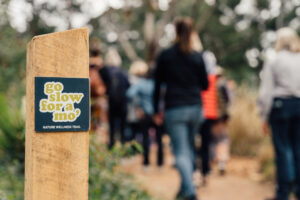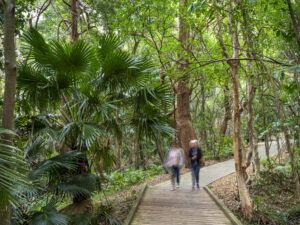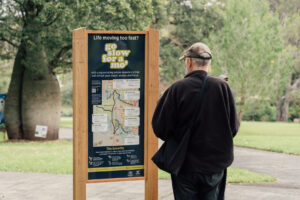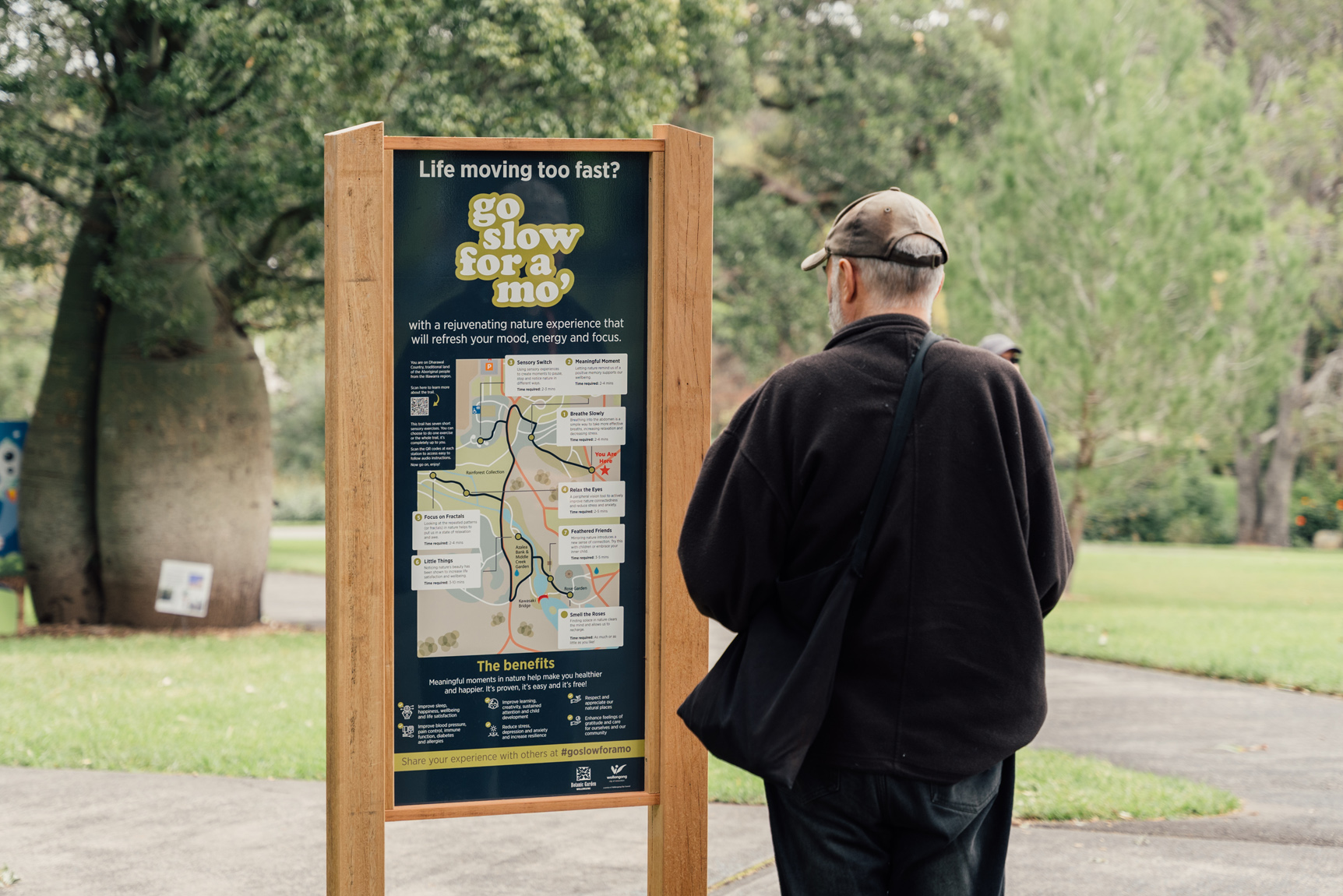Go slow for a quick pick me up
By Daniel Bishop
Research is emerging confirming what most garden lovers have always known … being immersed in nature feels good! But this research is also telling us that it’s not just spending time outdoors working in the garden, walking through the bush, or running along beaches that gives the most benefit. What matters, are those often brief, meaningful moments when we slow down, and really connect with the small details around us that reward us the most, and it’s not just a physical benefit.

Wellness, defined as both physical and mental wellbeing, is now a global industry. We keenly join the gym, play sports, take Pilates classes or undertake active recreation. Anything from rock climbing to hang gliding… sometimes on the same trip. We remind ourselves that an active body creates a healthy mind, and combined with diet, will give ourselves the best chance of good mental health. If that was all that was required, mental wellbeing perhaps wouldn’t be costing Australia over 10 billion dollars per year. Around 20% of us experience mental health issues and the related illnesses that surface from stress, anxiety, elevated blood pressure and sleep deprivation during our life. Despite this, we seem to lead increasingly busy lives, stuck on a treadmill… counting the steps… in a futile effort to feel better through increased effort. But what if it’s not about speeding up, but slowing down? What if it’s about moments, not minutes?
To provide more meaningful interactions, Wollongong Botanic Garden has recently installed a free ‘Go Slow for a Mo’ nature wellness trail, in collaboration with specialist providers The Connective, in an effort to provide an opportunity for visitors to slow down just for a moment, and observe the intricate details of life around us that is often moving at a very different pace to the life we construct for ourselves.
The trail contents, a series of 5-minute audio relaxation exercises, are backed by research conducted by The Connective with Macquarie University’s Living Lab, and follows numerous international studies that reinforce the mental and physical health benefits of nature interactions. These large studies demonstrate a measurable reduction in stress, depression and anxiety, better sleep habits and improvements in our ability to concentrate and learn, reduce blood pressure, engage a better immune response and assist diabetes management.
“(Interconnection within nature) reaches beyond the simple knowledge transmission of social-ecological interactions traditionally offered at educational institutions… It is not just contact with nature but the nature of the contact that matters most.” Planetary Health Alliance Education Framework (2021) Harvard School of Public Health.
There are seven stations placed around the Garden, capitalising on diverse landscapes and a range of natural environments, which can easily be experienced within an hour. QR code enabled audio files allow those on the trail to pause for a range of soothing voices to deliver these 5-minute exercises at each station. Print signage contains information for those without a smartphone or who prefer to read rather than listen. If visitors choose to engage within the app as a part of their experience, data can be collected on the number of participants, how people feel before and following their interaction, and how they can find out more about the trail.

Designed to be self-guided, the benefit expands when we exercise our minds this way regularly. However, much like yoga or meditation, it doesn’t need to happen in the same place or at the same time. You can learn these simple techniques and apply them anywhere nature surrounds you.
Just as many people find structured programs for exercise valuable, a guided experience can provide entry into a healthy mind activity. Installed in May 2021, we’re already fielding enquires from health professionals, health service providers and carers on the various ways they can take advantage of this experience with their clients. With the Botanic Garden sitting opposite the University of Wollongong campus, we’re exploring how we can collaborate on further studies and provide students with stress relief during periods of exam pressure.
Good health has an obvious community benefit and one that preoccupies much of Wollongong City Council’s engagement efforts. Pools, sporting facilities, community centres, accessibility and learning programs… they’re all widely adopted. Perhaps it hasn’t been an obvious function of gardens, however, there are subtle and relevant benefits that we’re seeking to obtain in hosting this activity. Along with the health outcomes, another key area uncovered is how influential these nature interactions are on our social and environmental behaviours. It has found people increase their levels of empathy for nature and feel a greater community connection. As a result, they’re more likely to support programs to protect the environment and actively participate in recycling and other environmental actions.
We are interested to see how this can assist in increasing community support for, and motivating participation in, our broader urban greening and waste reduction strategies that seek to address our city-wide response to the need for climate action.

Further research is being developed to understand if meaningful nature connections can aid in the recovery of people who’ve suffered traumatic life events such as bushfire, flood or the ongoing pandemic. While there are modest costs to installation of a Go Slow for a Mo trail, being able to provide this free community resource within our Garden is providing ongoing benefit for all.
The costs of our wellbeing in exercise programs and various health treatments, and the costs in protecting our planet, are huge. This shows us that sometimes the little things can be the ones that matter most… and that the best things in life can be free.
Daniel Bishop
Curator,
Wollongong Botanic Garden

